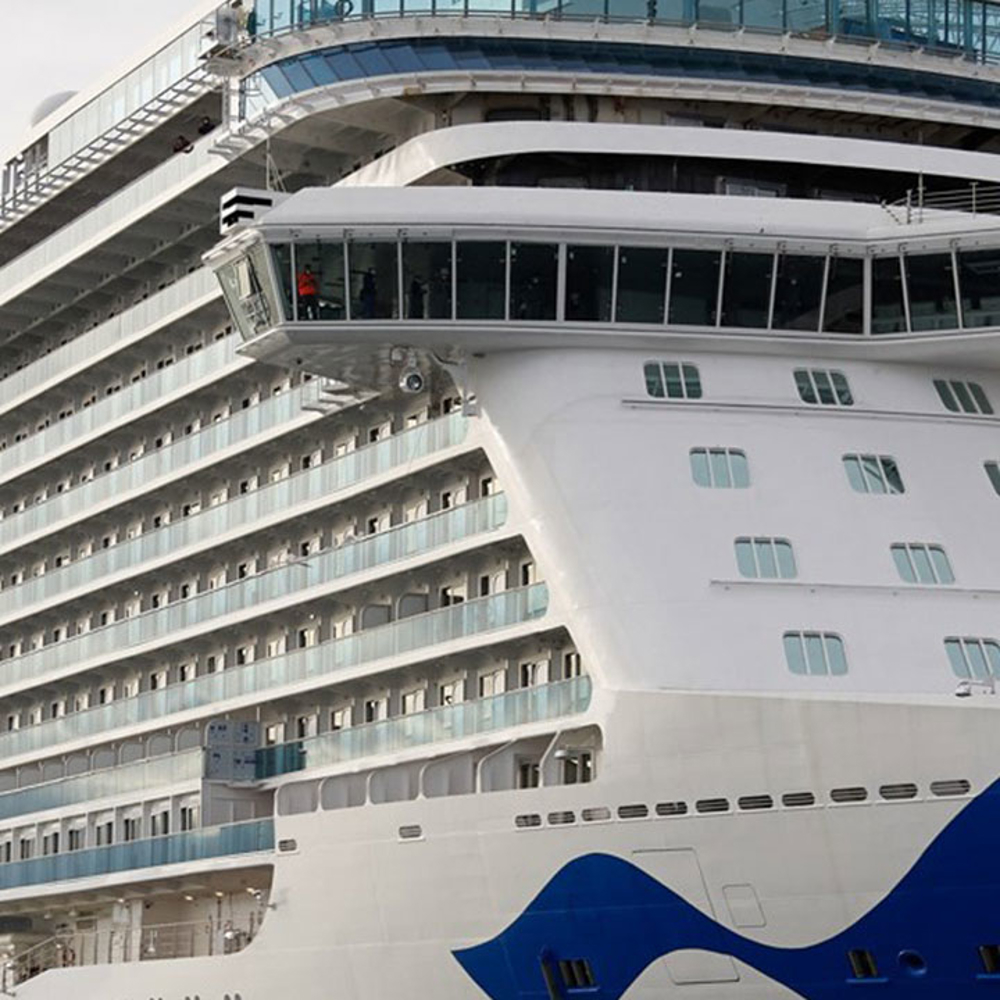LR and Fincantieri marked a milestone in their long-standing relationship earlier this year with the delivery of the Discovery Princess cruise ship – the 75th vessel to be built to LR class by Fincantieri.
We recently spoke to Fincantieri's Luigi Matarazzo (pictured right), General Manager of Fincantieri's Merchant Ships Division, about the shipbuilding group's relationship with LR, the maritime energy transition and digital transformation in the shipbuilding industry.
The relationship between LR and Fincantieri dates back to 1990. How would you describe your relationship and collaboration with LR?
LM: First of all, I would describe it as a valuable relationship from many points of view. In a complex sector such as the one in which we operate, characterised by high-profile technological projects and competition on a global scale, it is essential to establish relationships built on mutual trust, and this is what we have been able to do with LR. I want to add that this type of approach, based on solid relationships, has always belonged to our group and we identify it as one of the keys to success for us and for the partners we work with.
With Covid-19 increasing the appetite for digital technology, how is the digital shipyard concept progressing and how does digital class co-exist with this journey?
LM: Not only the impacts of Covid-19, but also the challenges related to the maritime energy transition, require a radical transformation of business models. The pervasive use of intelligent devices, Internet of Things and artificial intelligence, is already having an impact in most industrial sectors, including the design, production and construction processes in segments related to the maritime sector and others in which Fincantieri operates. The world of digitalisation also poses important challenges in the context of the development of pervasive and efficient network infrastructures, in the management of increasingly relevant quantities of data and in the extraction of value from data analysis. We are fully engaged in this process.
With the shipping industry in a state of transformation, how will this impact the shipbuilding sector? What role is Fincanteri playing?
LM: Despite the pandemic, in 2021 Fincantieri acquired 3.3 billion euros of orders and created over 800 direct jobs in Italy and over 3,800 in related industries thanks to increases in our workforce. The results achieved in the last year provide concrete proof of the effectiveness of the strategic choices made by Mr. Bono and the management and the ability to respond to highly critical situations, with reference to the health emergency but also to the conflict in Ukraine, which introduces further uncertainties. In other words, solidity and reliability are objectives that we have set ourselves to pursue in all circumstances, even in the exceptional ones of recent years, and the entire sector benefits from them.
What do you foresee will happen in the run up to 2050? Can you share any insights on the dominating alternative fuel pathways and technologies?
LM: In order to achieve decarbonisation of the maritime sector it will be necessary to act in an integrated and phased manner on multiple fronts. This process will not be determined with constant technology: a breakthrough is needed, a revolutionary innovation. To achieve climate goals, hydrogen and other alternative sustainable fuels will play a decisive role. But many other intermediate steps are still necessary, which will imply the coexistence of multiple solutions. Furthermore, it is essential to recognise that the variety of the sector will not allow the adoption of a 'one size fits all solution', but multiple technological trajectories will be required.
Fincantieri is seen as a world shipbuilding success story. What is your vision for the company but also your country’s shipbuilding industry as a whole?
LM: Our vision for the future of the industry is linked to what we call the 'green ship'. On our side, Fincantieri aims to solve the green challenge through a holistic approach, covering all the onboard sub-systems. Future research will be focused on reducing air and water emissions, greater innovation of onboard waste management systems and disposal systems and reducing noise and vibrations. Furthermore, we support the green fuel switch also by harnessing renewable energy, and we believe in new technologies for decarbonisation such as fuel cells and encourage the use of high-performance materials and eco-design ideas. The road that leads to a different future is still long, but it has been undertaken with determination and today we see the goal is a little closer.
What does sustainability mean to Fincantieri?
LM: A company is sustainable when it generates value for the future, not just in the current moment. We are a reference point in industrial culture and this position comes with the responsibility to act in a sustainable manner. Thus, it is in our interest to combine competitiveness with environmental sustainability and social responsibility. Therefore, we are continuing on our path to sustainable success with the adoption of an integrated strategy capable of combining business growth and financial stability with social and environmental sustainability.
2022 marks the 150-year anniversary of LR in Italy. Since the first LR surveyor in Genoa was appointed in 1872, LR has supported Italy to become a global leader in passenger ship building. Sharing rich maritime heritage, LR and Fincantieri have together achieved numerous notable industry firsts, such as Carnival Destiny, delivered in 1996, the first cruise ship over 100,000 GT and the world's largest cruise ship at that time. Grand Princess was also the largest cruise ship in the world when delivered in 1998. Additionally, LR classed the first dual fuel/LNG ferry ever built in Italy – F.A Gauthier, delivered by Fincantieri in 2015.







